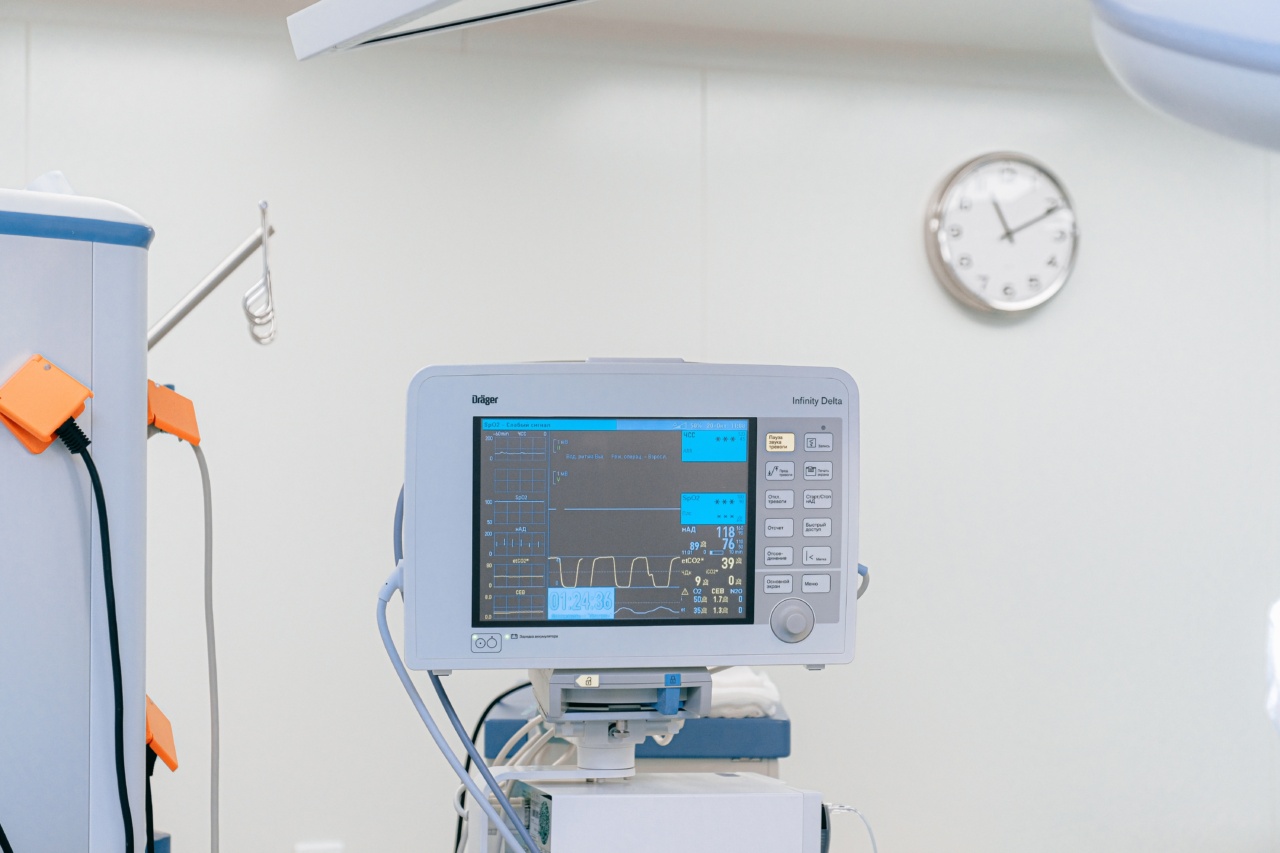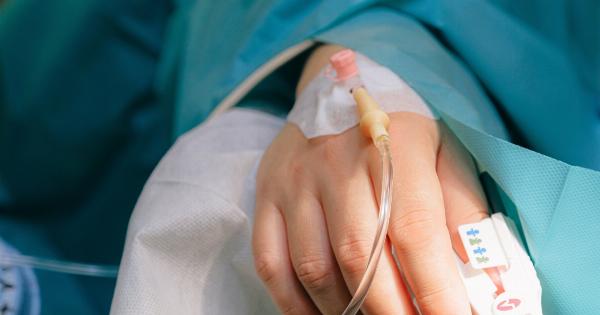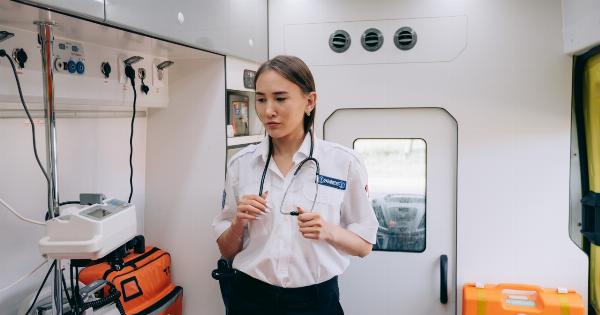In certain situations, medical conditions can arise that require immediate attention and urgent treatment. These emergency situations can be critical and potentially life-threatening if prompt medical care is not provided.
It is crucial to be aware of the signs and symptoms that indicate the need for emergency treatment so that appropriate action can be taken promptly. This article will explore the two-fold signs that require immediate medical attention.
1. Cardiovascular Emergencies
Cardiovascular emergencies involve conditions affecting the heart and blood vessels that can quickly escalate and become life-threatening. Some common signs of cardiovascular emergencies include:.
- Chest pain or discomfort
- Shortness of breath
- Irregular heartbeat
- Severe dizziness or fainting
- Extreme fatigue
These symptoms may indicate a heart attack, cardiac arrest, or other severe cardiovascular problems. It is crucial to seek immediate medical assistance for proper diagnosis and treatment.
2. Respiratory Emergencies
Respiratory emergencies involve conditions related to breathing difficulties or compromised lung function. These emergencies can rapidly worsen and lead to respiratory failure. Critical signs of respiratory emergencies include:.
- Sudden difficulty breathing or shortness of breath
- Rapid or shallow breathing
- Wheezing or gasping for air
- Severe chest pain
- Blue lips or skin
Respiratory emergencies may result from severe asthma attacks, allergic reactions, choking, or underlying lung diseases. Immediate medical intervention is necessary to restore normal breathing and prevent further complications.
3. Neurological Emergencies
Neurological emergencies involve conditions affecting the nervous system, which includes the brain, spinal cord, and nerves. Some signs that may indicate a neurological emergency include:.
- Sudden and severe headache
- Loss of consciousness or fainting
- Sudden paralysis or weakness of limbs
- Confusion or altered mental state
- Seizures
Neurological emergencies, such as strokes or traumatic brain injuries, require immediate medical attention to prevent further damage and improve the chances of recovery.
4. Abdominal Emergencies
Abdominal emergencies involve conditions affecting the organs within the abdomen, including the stomach, intestines, liver, and appendix. Common signs of abdominal emergencies include:.
- Severe abdominal pain or cramping
- Bloody stools or vomiting blood
- Sudden and persistent nausea and vomiting
- Unexplained weight loss
- Abdominal distention or swelling
Abdominal emergencies may indicate various conditions, such as appendicitis, gastrointestinal bleeding, or intestinal obstructions.
Immediate medical evaluation is necessary for accurate diagnosis and treatment of these potentially life-threatening conditions.
5. Traumatic Injuries
Traumatic injuries occur as a result of accidents or physical injuries that cause immediate harm to the body. Some signs of traumatic injuries requiring emergency treatment include:.
- Severe bleeding that cannot be controlled
- Deep cuts or lacerations
- Suspected broken bones
- Inability to move limbs
- Severe burns
Traumatic injuries can result from falls, car accidents, sports injuries, or other unfortunate incidents. Immediate medical attention is necessary to prevent complications, manage pain, and facilitate proper healing.
6. Allergic Reactions
Allergic reactions can range from mild to severe, potentially leading to a life-threatening condition called anaphylaxis. Some signs of severe allergic reactions requiring emergency treatment include:.
- Swelling of the face, lips, or tongue
- Difficulty swallowing or speaking
- Widespread hives or itching
- Shortness of breath or wheezing
- Dizziness or lightheadedness
Severe allergic reactions can be triggered by food, medications, insect stings, or exposure to certain substances. Immediate medical attention, including the administration of epinephrine (if available), is necessary to prevent potential fatalities.
7. Psychiatric Emergencies
Psychiatric emergencies involve acute disturbances in mental health that require immediate intervention. Signs of psychiatric emergencies may include:.
- Expressing thoughts of self-harm or suicide
- Actively attempting self-harm
- Aggressive or violent behavior
- Severe hallucinations or delusions
- Loss of contact with reality
Psychiatric emergencies can pose significant risks to the individual and those around them. It is crucial to seek immediate psychiatric care to ensure the safety and well-being of all parties involved.
8. Severe Infections
Severe infections can rapidly progress and lead to life-threatening conditions if not treated promptly. Signs of severe infections requiring emergency treatment include:.
- High fever (>101°F or 38°C)
- Severe pain or swelling in specific areas
- Confusion or disorientation
- Rapid breathing or difficulty breathing
- Severe dehydration
Severe infections can arise from various sources, such as pneumonia, meningitis, or sepsis. Immediate medical attention is crucial to start appropriate antibiotic treatment and prevent the infection from spreading.
9. Overdose or Poisoning
Overdose or poisoning can be life-threatening situations requiring immediate medical intervention. Signs of overdose or poisoning may include:.
- Loss of consciousness
- Difficulty breathing
- Seizures
- Unusual or erratic behavior
- Extreme confusion or agitation
Overdose or poisoning can result from drug or alcohol abuse, accidental ingestion of toxic substances, or intentional self-harm. Immediate medical attention can help prevent further harm and promote recovery.
10. Obstetric Emergencies
Obstetric emergencies occur during pregnancy or childbirth, requiring immediate medical attention to ensure the health of the mother and baby. Signs of obstetric emergencies may include:.
- Severe abdominal pain
- Excessive vaginal bleeding
- Partial or complete loss of consciousness
- Decreased fetal movement
- Sudden swelling of hands or face
Obstetric emergencies can arise due to various factors, such as placental abruption, preeclampsia, or fetal distress. Immediate medical intervention is crucial to protect the well-being of both the mother and baby.
In conclusion, recognizing the signs and symptoms that warrant emergency treatment is vital for ensuring timely and appropriate medical care.
Cardiovascular emergencies, respiratory emergencies, neurological emergencies, abdominal emergencies, traumatic injuries, allergic reactions, psychiatric emergencies, severe infections, overdose or poisoning, and obstetric emergencies are among the various situations where immediate medical attention is crucial. It is essential to seek professional medical help or contact emergency services when encountering any of these two-fold signs to prevent worsening conditions and potential life-threatening outcomes.






























